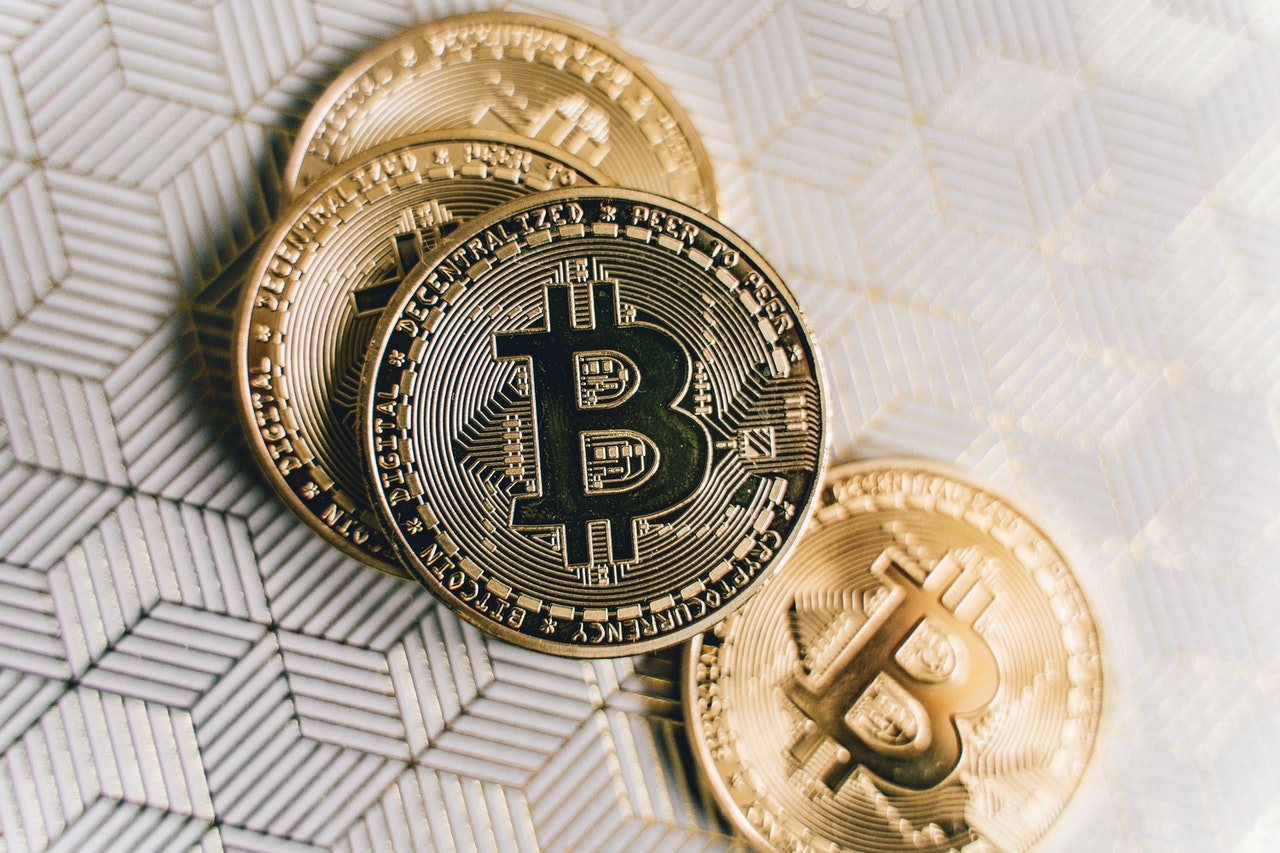Cryptocurrency donation differs significantly from the traditional way of giving. This difference is changing reasons for giving, funding models, and donor demographics.
The rising rate of cryptocurrency donations shows that this charitable method of giving will go a long way in transforming nonprofit organizations.
Cryptocurrency availability for charitable giving has seen young people donate in crypto to nonprofit organizations like Food for Life Global (FFLG).
While some people focus on hoarding crypto, hoping the number continues to increase, others work to share the wealth to support worthy causes.
Are you considering donating cryptocurrency to charitable organizations but don’t know how it works or the cryptocurrencies to send? This article is for you. Read to the end!
Is My Cryptocurrency Charitable Donation Tax Deductible?
Donating crypto to nonprofits is tax-deductible in most countries like New Zealand, Australia, Canada, the UK, and the US. You can only pay capital gains tax when converting crypto to fiat.
By donating a long-term appreciated coin, you can deduct the crypto’s fair market value during the contribution. For instance, suppose you bought your cryptocurrency for $3,000 and it rose to $6,000; the total money is subject to a tax deduction.
However, if you convert the $6,000 to fiat, you’ll have to write off $1200, which is 20% of $6,000. Simply put, donating crypto directly can save you about 20% to 30% of taxes.
What Cryptos Are Accepted for Donations?
Charities like Food for Life Global (FFLG) accept donations of various types, making it easier for donors to support their causes.
FFLG is one of the few humanitarian organizations that accept cryptocurrencies of various types including the following:
Bitcoin (BTC)
Ethereum (ETH)
USD Coin (USDC)
Dai (DAI)
Dogecoin (DOGE)
Basic Attention Token (BAT)
Ethereum Name Service (ENS)
0x (ZRX)
1inch (1INCH)
Aave (AAVE)
Alchemix (ALCX)
Amp (AMP)
Ankr Network (ANKR)
API3 (API3)
Audius (AUDIO)
Axie Infinity Shards (AXS)
Balancer (BAL)
Bancor Network Token (BNT)
BarnBridge (BOND)
Bitcoin Cash (BCH)
ChainLink (LINK)
Civic (CVC)
Compound (COMP)
Decentraland (MANA)
Dogelon Mars (ELON)
Enjin Coin (ENJ)
Fantom (FTM)
Fetch AI (FET)
Filecoin (FIL)
Gala (GALA)
Gemini Dollar (GUSD)
Injective Protocol (INJ)
Keep3r (KP3R)
Kyber Network (KNC)
Litecoin (LTC)
Livepeer (LPT)
Loopring (LRC)
Magic Internet Money (MIM)
Maker (MKR)
Mask Network (MASK)
Merit Circle (MC)
Mirror Protocol (MIR)
Moss Carbon Credit (MCO2)
Numeraire (NMR)
Orchid (OXT)
Quant (QNT)
Radicle (RAD)
Ren (REN)
Render Token (RNDR)
Shiba Inu (SHIB)
Skale (SKL)
Smooth Love Potion (SLP)
Somnium Space (CUBE)
Spell Token (SPELL)
Storj (STORJ)
SushiSwap (SUSHI)
Synthetix (SNX)
Terra (LUNA)
TerraUSD (UST)
Tezos (XTZ)
The Graph (GRT)
The Sandbox (SAND)
UMA (UMA)
Uniswap (UNI)
Wrapped Centrifuge (wCFG)
Yearn.Finance (YFI)
Zcash (ZEC)
The Rise of Crypto Donations
Many international nonprofits have started accepting crypto as more people continue to lean towards cryptocurrency donations. Fidelity Charitable, a financial services company that advises donors on giving to charities, received about $331 million in cryptos, a considerable leap from the $28 million received in 2020.
In its annual report, a crypto donation platform, Giving Block, witnessed $69 million as 2021’s total donation volume, a massive 1,558% increase compared to the amount generated in 2020.
The ease of donating cryptos is one of the reasons charities can have donors globally. Although Food for Life Global (FFLG), the leading international hunger relief organization, was amongst the first charities to accept cryptocurrency donations, many international nonprofits have started accepting donations in cryptocurrency.
For instance, UNICEF is presently accepting cryptocurrency donations. The nonprofit also launched a financial vehicle for accepting crypto called CryptoFund. Renowned organizations like Greenpeace and the Red Cross are also accepting crypto currently.

Why Donate Crypto?
Lots of cryptocurrencies are known for their volatility. Instead of donating cash in the value of the crypto you’re holding and incurring capital gains tax on a coin that might crash, it’s best to give the crypto regardless of its value.
Some charities increase their crypto donation value over time through price volatility by holding the crypto donation in a charitable classified Bitcoin (BTC) pending when they’re ready to sell Bitcoin.
Direct crypto donations help you to avoid the capital gains tax you’d have incurred following the sales. You’ll even enjoy a tax deduction once you donate to an established charity.
Some nonprofits also organize fundraisers within the crypto community using decentralized fundraising methods, like the decentralized autonomous organizations (DAO). People with non-fungible token (NFT) projects can also donate to charity.
It’d be best for charities to consider accepting other cryptocurrencies besides Bitcoin, Ethereum, Dogecoin. They should also lean towards accepting NFT donations.
Public blockchains are transparent until the coins are converted to cash, potentially reducing corruption to the fullest extent permitted. Also, people making donations via a cryptocurrency community won’t have to be identified outside their wallet address.
How FFL Use Your Donation
Cryptocurrencies are the fastest-growing digital payment that’s quickly gaining traction globally. Making a cryptocurrency donation offers several benefits over traditional payment forms, including greater security, capital gains tax, and faster transactions.
Like other charities that accept cryptocurrencies, FFLG uses its donations to do the following:
Help People
Food for Life Global (FFLG) is a leading hunger-relief charity that provides food for the hungry globally. As a vegan food nonprofit, Food for Life prepares freshly cooked meals daily for the hungry and malnourished.
Besides providing pure vegan food, Food for Life Global also teaches its beneficiaries how to maintain responsible behavior towards mother earth and natural resources.
Besides serving vegan meals to the hungry and malnourished, Food for Life Global also provides educational and medical assistance to countries where they operate.
Help Animals
Food for Life Global supports animal charities and fights against animal cruelty as a vegan food relief organization. Some of the charities they support include:
Juliana’s Animal Sanctuary
Juliana’s Animal Sanctuary is a 501c3 non profit organization registered in Maryland, US, in 2015 after it was founded in 2006 as the first animal sanctuary in Colombia, South America.
The sanctuary is the first to receive full certification by the Global Federation of Farm Sanctuaries in South America. Besides animal care and rescue, Juliana’s animal sanctuary also created educational programs, vegan food relief, and cooking workshops. FFLG is a partner with the animal shelter on vegan food relief.

Feed Hungry Children
With $2, you can offer a kid one meal while $30 will feed 15 hungry children under the FFLG hunger relief program. Also, $60 will feed 30 kids and 50 children won’t go to bed hungry with a $100 donation.
For various FFL partners like the Food for Life Vrindavan, you can donate as little as $1.50 daily to help provide food, medical care, and clothing for a needy kid in India.
Also, in FFLG, you can donate $350 for an entire year to educate and feed one hungry child.
Work Worldwide
Food for Life Global utilizes every donation to establish affiliates in various countries with malnourished children. The leading hunger-relief organization has over 250 Food for Life affiliates in over 65 countries. With your assistance, FFLG affiliates serve food and other relief materials to countries facing war, civil unrest, or natural disasters.
As one of the first charitable organizations to have accepted cryptocurrency donations, Food for Life uses platforms like The Giving Block and CoinBase to accept crypto donations.
How Much to Donate?
The amount to donate to Food for Life Global or any reputable charitable organization depends entirely on how much you can afford to give to the charity and the type of nonprofit you support.
Food for Life Global appreciates all charitable giving regardless of the amount. The truth is, the higher the donations, the more people, particularly hungry children, the fund can feed. However, each dollar donated goes into preparing fresh vegan meals daily for hungry people, especially school children and kids in countries battling war, civil unrest, or natural disasters.
Final Words
Crypto philanthropy helps charitable organizations like Food for Life Global (FFLG) to scale their work and make the world a better place. Most people prefer donating crypto because it’s more efficient, secure, and faster than traditional methods such as checks or cash.
On the other hand, others find it more convenient and easier to donate cryptocurrency. Regardless of your reasons, donating crypto is an excellent way to help a worthy cause while also taking advantage of the numerous tax benefits of utilizing the payment system.
Are you considering making donation to a charitable organization to promote a good cause but don’t want to go through the traditional method of writing a check or donating cash? Then it’ll interest you to know that you can donate cryptocurrency to reputable charities like Food for Life Global (FFLG).
FFLG, the leading international hunger-relief organization operating across 65 countries, is one nonprofit you’d want to support if the thought of children going to bed hungry every night saddens you. Go through our website to donate to any of the above-mentioned cryptos if you prefer that method.
Your donation helps us serve fresh vegan food daily to 2 million school children. You can donate bitcoin directly, support us with NFT mints, or give any other cryptocurrency you can afford to help promote our cause.






2 Comments
Bedankt voor het delen van deze kennis over financieringsmodellen.
For more information: https://whydonate.com/blog/financieringsmodellen-voor-non-profitorganisaties/
Thank you. If you don’t find all your answers from the website, please write to us via the contact page http://ffl.org/contact/